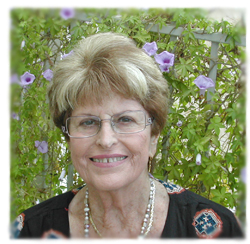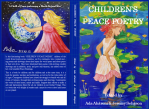Peace Poet Wilfred Owen
Posted: 2011/05/07 Filed under: Articles, Lectures, Peace Education, Poetry | Tags: peace poems, peace poetry, wilfred owen 1 Comment
Peace Poetry workshop lecture:
PEACE POET WILFRED OWEN (1893 – 1918)
“I am the enemy you killed my friend.” Wilfred Owen
By Dr. Ada Aharoni
 One of my favorite poets who has greatly influenced my outlook on life and my creative work, is the British peace poet Wilfred Owen, who died in the trenches in World War I, at the young age of twenty-five. His beautiful poetry is today taught in universities around the world, and it is the background of the moving film “All’s Quiet on the Western Front,” which has through the years become a classic. Quotations from his peace poems appear in various scenes throughout the film.
One of my favorite poets who has greatly influenced my outlook on life and my creative work, is the British peace poet Wilfred Owen, who died in the trenches in World War I, at the young age of twenty-five. His beautiful poetry is today taught in universities around the world, and it is the background of the moving film “All’s Quiet on the Western Front,” which has through the years become a classic. Quotations from his peace poems appear in various scenes throughout the film.
Wilfred Owen is thought today to be one of the greatest British poets. He left poems and sonnets that are reckoned among the most moving peace poems ever written. He was educated at London University, and was a tutor in France for some time. At the outbreak of World War I, he was mobilized to the front in the rifle corps, and a month before he was shot, he was awarded the Military Cross for gallantry. A week before the armistice, Owen was killed in action, November 4, 1918. His work was published two years after his death. Owen has influenced some major poets that followed him years later, such as W.H. Auden and Stephen Spender.
Through moving and authentic universal peace poems, which powerfully condemn war, Wilfred Owen succeeds to instill in the hearts of his readers that the very concept and practice of war should be anachronistic. He likewise succeeds to convince us that poetry is one of the most powerful and effective vehicles to describe the horrors of war and that it can help in building the cultural climate of peace, needed for banning war from the earth. His poems such as “Anthem for Doomed Youth,” and “Futility,” as so many others, deal with the delicate nuances of the deepest thoughts, feelings and truths concerning war and peace, through moving lyrical and graphic concrete human experience concerning the abomination and senselessness of wars. He addresses not only our minds and hearts but also all our senses through the process of empathic imagination.
His poems are most relevant and actual nowadays, in Israel, in the M.E, and in the world, when more than fifty wars are still ravaging our global village. Even after Peace Treaties or arrangements are signed, as between Israel and Egypt, Israel and Jordan, Bosnia, Rwanda, Ireland and South Africa – there are deep layers and levels of mistrust and residues of hatred and emotions remaining in the hearts of the people who had been former enemies. These ethnic differences and mistrusts can mainly be bridged by a vehicle of culture and emotions, and not by guns. They can be gapped by the understanding and respecting of the “other’s” cultural ethnicity, which leads to tolerance and acceptance. And what could be more suited for that than poetry and literature that have the ability to delve deeply into the essences of the deep cultural ethnicity of both sides of a conflict.
However, we must remember that good peace poetry should be authentic, and really express not only some specific reality, but true deep feelings, hopes and aspirations, and not as is sometimes seen in so called “avant-garde” poetry – mawkish and charlatan outpouring or pseudo self-pitying. We see none of this in Wilfred Owen. His friend, the peace poet Siegfried Sassoon rightly said of him: “He pitied others; he did not pity himself.”
Some literary critics have expressed their concern in recent years, at the phenomenon that poetry does not have the same status and impact nowadays as it did in the past. One of the main reasons I think, why poetry’s status has gone down the drain in recent years, is the fact that it has not dealt enough or with the same intensity and depth, as Wilfred Owen for instance, with the main problems facing our generation. Poetry has ceased to aspire to being at the forefront of our true and urgent human aspirations. What could be a greater aspiration of humanity today, than to get rid of the danger of being blown up by the nuclear arsenals around the world, which as we are told, are more than a hundred times the amount needed to blow us up! As foremost scientists have often warned us – when something exists, one day it will be used! Do we want to let it happen, and just go on discussing “Lyrical Nature Poetry” and “Narrative Poetry”, or should we really be, like T.S. Eliot said: “the consciousness of the nation”? Should we try to do something through our art, not to let a nuclear winter happen? As Wilfred Owen did, through his impressive and so moving poetry, and Tolstoy through his monumental masterpiece “War and Peace.”
Wilfred Owen, as several other peace poets and writers around the world, dedicated his short life to try to ban and outlaw war. Evelyne Hardy, the wife of the British writer Thomas Hardy, says about him in her biography covering his life, that he always felt that, “One day soon, war will come to an end, not because of our growing humanity – but because of war’s growing absurdity….” Every conscientious writer, poet and human being should take it upon himself or herself, to persevere in the road Wilfred Owen, Thomas Hardy and Tolstoy have paved for us, until wars are banished from our earth. In doing so, let us remember Virginia Woolf’s wise words in her book: “Three Guineas” –
“We cannot use your words and your methods; we have to invent new words and new methods….”
Owen’s condemnation of war, and his well-known epithet “The pity of war,” is well illustrated in poems such as “STRANGE MEETING,” which has been called by literary critics, the most powerfully projected of all peace poems.
STRANGE MEETING
It seemed that out of battle I escaped
Down some profound dull tunnel, long since scooped
Through granites which Titanic wars had groined.
Yet also there encumbered sleepers groaned,
Too fast in thought or death to be bestirred.
Then, as I probed them, one sprang up, and stared
With piteous recognition in fixed eyes,
Lifting distressful hands as if to bless.
And by his smile, I knew that sullen hall;
By his dead smile I knew I stood in Hell.
With a thousand pains that vision’s face was grained;
Yet no blood reached there from the upper ground,
And no guns thumped, or down the flues made moan.
“Strange friend,” I said, “here is no cause to mourn.”
“None,” said the other, “save the undone years,
The Hopelessness. Whatever hope is yours,
Was my life also; I went hunting wild
After the wildest beauty in the world…
I mean the truth untold:
The pity of war, the pity war distilled.
Now men will go content with what we spoiled,
Or, discontent, boil bloody, and be spilled.
They will be swift with swiftness of the tigress,
None will break ranks, though nations trek from progress.
Courage was mine, and I had mystery,
Wisdom was mine, and I had mastery;
To miss the march of this retreating world
Into vain citadels that are not walled.
Then when much blood had clogged their chariot-wheels
I would go up and wash them from sweet wells,
Even with truths that lie too deep for taint.
I would have poured my spirit without stint
But not through wounds; not at the cost of war.
I am the enemy you killed, my friend.
I knew you in this death; for so you frowned
Yesterday through me as you jabbed and killed.
I parried; but my hands were loath and cold.
Let us sleep now…”
Listen: Kenneth Branagh reads Strange Meeting
Read: Ada Aharoni’s poem Wilfred Owen: We Are Still Deaf



 IFLAC Latin America
IFLAC Latin America IFLAC Hungary
IFLAC Hungary IFLAC Romania
IFLAC Romania IFLAC Spain
IFLAC Spain IFLAC in Hebrew
IFLAC in Hebrew IFLAC Japan
IFLAC Japan IFLAC Canada
IFLAC Canada IFLAC Pakistan – Yahoo group
IFLAC Pakistan – Yahoo group



All the leaders of the world should read Wilfred Owen’s Peace Poetry and his ovrwhelming condemnation of war. Through his words and poignant imges of what war means, he may convince them that they should banish war from our global village, before it is too late and we drown in nuclear fumes.
Ada Aharoni
LikeLike